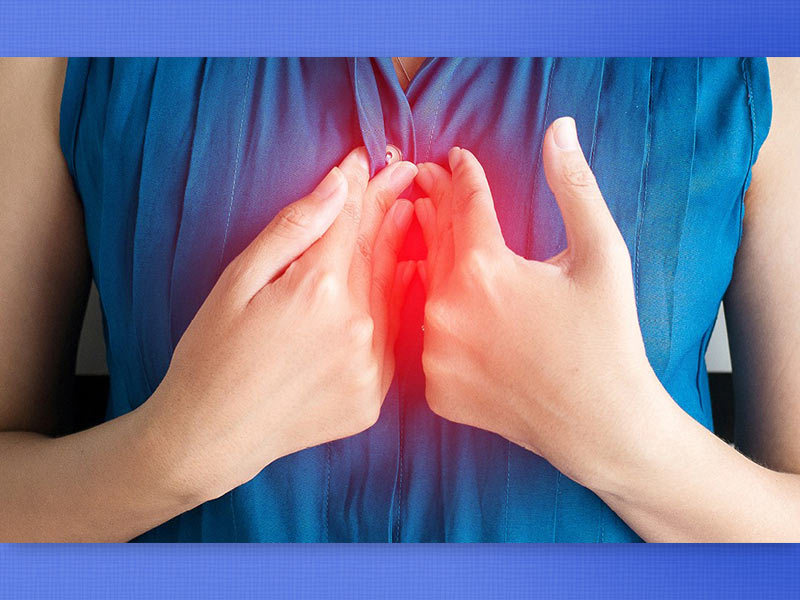
Gastroesophageal reflux disease (GERD) or acid reflux is the condition in which the gastric contents, mostly acid, enter into the food pipe or oesophagus. The oesophagus lacks the protective coat to handle gastric acid, so whenever there is acid reflux, the person experiences pain and discomfort. GERD happens to be one of the pressing concerns for youngsters and working professionals today. Studies show that GERD prevalence in India ranges from 8% to 19% of the total population. It is pretty much common among those with an erratic lifestyle. However, if not controlled, acid reflux can result in various complications and troublesome symptoms like heartburn.
Table of Content:-
Reddy Jyothsna, HOD & Chief Clinical Nutritionist – Sakra World Hospital, Bengaluru shares some common FAQs that one must know to manage acid reflux or GERD
Things To Know About Acid Reflux
There are several factors causing acid reflux, one of which happens to be weakened or damaged lower oesophageal sphincter (LES). While usually, the LES closes to stop the food in the stomach from moving up into the oesophagus, a damaged or weakened LES facilitates the backflow of food and the backflow of acid present in the food from the food stomach into the oesophagus, causing acid reflux.
1# How does diet help reduce discomfort?
A nutrition therapy plan can help reduce the symptoms and discomfort associated with GERD by eliminating foods that:
- Increase acid secretion in the stomach like alcohol, pepper and coffee (caffeinated/decaffeinated)
- Increase reflux of stomach acid into food pipe like peppermint, chocolate, alcohol, coffee, onion, garlic and high fat, fried food

Also Read: Diet To Treat Or Sooth Pain Caused Due To Acid Reflux
2# What are the signs of acid reflux?
Heartburn or a burning sensation in the stomach or chest after eating a full meal or certain foods is a common sign of acid reflux. Others include vomiting or regurgitation, dry cough, sore throat, bloating, burping or hiccups, difficulty in swallowing, lump in the throat and more.
3# What is the extent of fat restriction?
You will be advised a low-fat diet, although not a completely fat free diet. If you consume too much fat in a single meal the food moves slowly from your stomach to intestine, increasing the reflux of food back into the food pipe.
4# How long the alcohol restriction continues?
So long as a person is symptomatic, alcohol restriction is advised. Even when the symptoms have ,resolved you are advised to limit your alcohol intake because it increases the acid production and reflux.

5# How does smoking affect the GERD symptoms?
Smoking cessation is a part of the lifestyle management for GERD. Tobacco use, as smoking or chewing is considered to increase the risk of reflux, acid production and reduce saliva production.
6# What about my hydration status?
- Drink plenty of water in between the meals rather than with it.
- Taking fluids consistently can help reduce the discomfort and bloating. Always pick out low calorie caffeine-free fluids
7# Is my weight-related to GERD?
Underweight or Overweight and obese individuals have a greater chance of having GERD. If you are in the same category, weight management can help lessen the discomfort and symptoms of GERD.

Also Read: 10 Surprising Symptoms of Acid Reflux
8# Can I exercise?
Yes, you can exercise. How your physician/nutritionist will discuss much exercise and what type you need to do. Regular exercise will help maintain healthy body weight.
This information is in general. Hence, it is best for individuals to consult your physician or clinical nutritionist for the right treatment and the required course for relief from acid reflux.
With inputs from Reddy Jyothsna, HOD & Chief Clinical Nutritionist – Sakra World Hospital, Bengaluru
Read more articles on Other Diseases
Also watch this video
How we keep this article up to date:
We work with experts and keep a close eye on the latest in health and wellness. Whenever there is a new research or helpful information, we update our articles with accurate and useful advice.
Current Version